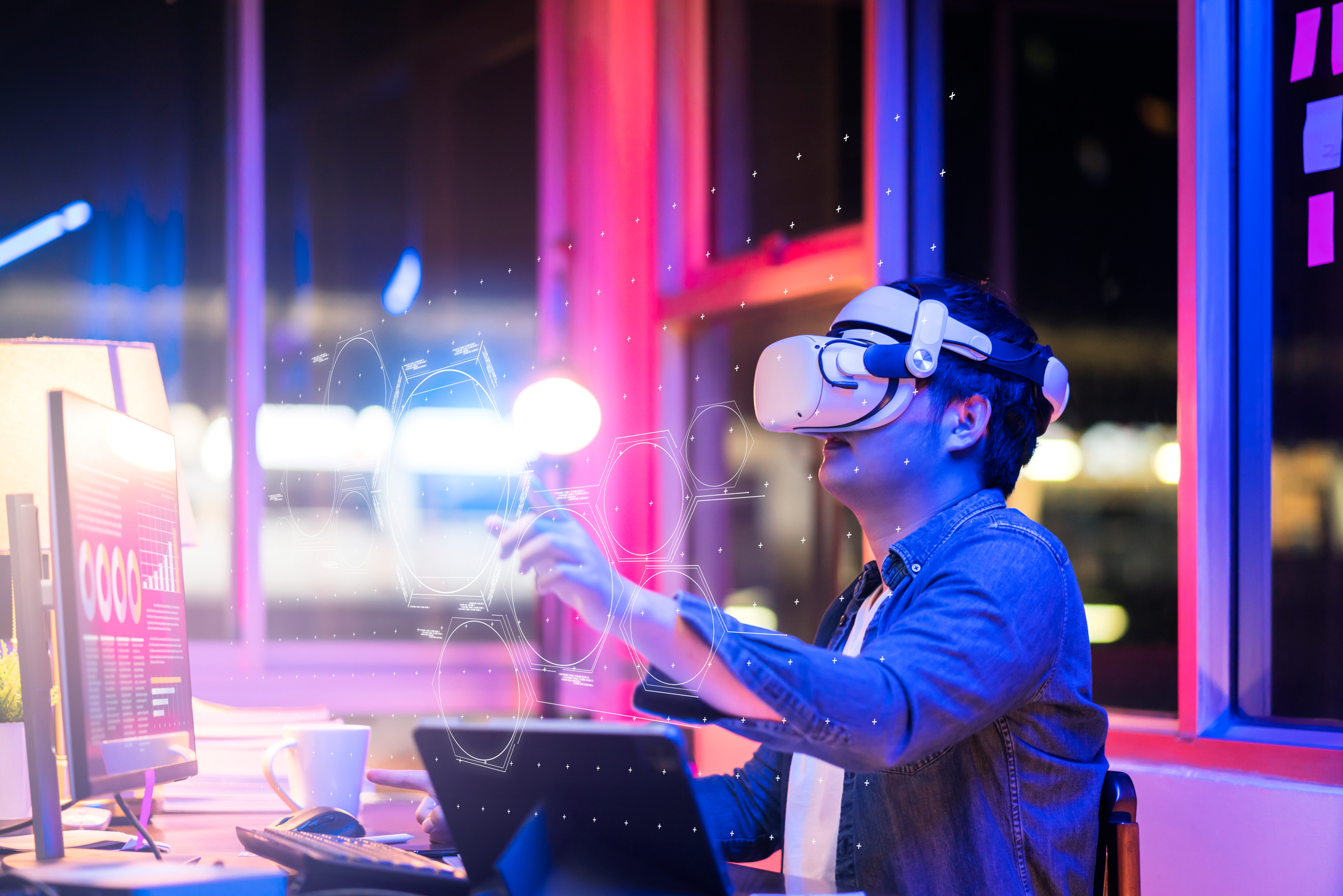
Event Marketing Trends in 2024
Last update: 20 March 2024 at 07:25 am
The COVID-19 pandemic disrupted how events were conducted, leading to the rapid emergence of hybrid events. Gone are the days of solely physical gatherings; now, mixed events are the new normal. These events blend in-person and virtual components, ensuring businesses can connect with their audiences, even in uncertain times.
In 2024, the lessons learned during the pandemic will continue to shape event formats. The ability to adapt and provide flexible experiences is no longer just an option but an expectation. Companies must be prepared to pivot from purely in-person to hybrid events at a moment’s notice. This significantly broadens their audience base regardless of the circumstances.
Virtual events have become a game-changer in a company’s digital marketing strategy. They provide a platform for building brand value, which boosts audience engagement and ultimately drives conversions.
In 2024, these event trends will be more dynamic and engaging than ever.
Event Marketing Trends Key Takeaways:
- Adaptability is Crucial: The lessons from the pandemic continue to influence event formats in 2024. Companies must be prepared to switch seamlessly from in-person to hybrid events to broaden their audience base, making adaptability an expectation, not just an option.
- Virtual Events Drive Marketing Strategy: Virtual events are a game-changer in digital marketing, providing a platform for building brand value, boosting audience engagement, and ultimately driving conversions.
- Hybrid Events for Global Reach: Hybrid events transcend geographical boundaries, enabling businesses to connect with global audiences. This expanded reach presents opportunities for increased brand awareness and revenue.
- Seamless Hybrid Experiences: In 2024, creating a seamless hybrid experience is essential. Flawless integration of digital and physical elements ensures a cohesive experience for all participants, giving event planners a distinct advantage.
- Personalization is Key: Personalization in event marketing goes beyond addressing attendees by name. Successful event marketing in 2024 requires a deep understanding of attendee preferences, behaviors, and past interactions for a personalized experience.
- Data and AI for Personalization: Utilizing data and artificial intelligence is crucial for achieving personalization at scale. Insights from data analytics help curate successful events that resonate with each participant.
- AR and VR Enhance Experiences: Augmented Reality (AR) and Virtual Reality (VR) are leveraged to captivate attendees, creating interactive and engaging event experiences, from virtual product demonstrations to gamified interactions.
- Interactive Content and Gamification: Incorporating interactive elements like live polls and gamification increases attendee engagement. Fun, relevant challenges, appealing rewards, and leaderboards create an exciting and participatory event.
- Social Media Integration for Promotion: Social media platforms are integral for event promotion in 2024, allowing businesses to create buzz, engage potential attendees, and measure success through reach, engagement, and conversion rates.
- Influencers for Event Success: Influencer collaboration is no longer an option but a necessity for event success. Identifying relevant influencers based on relevance, authenticity, and engagement can amplify event reach and generate excitement.
- Inclusivity and Accessibility are Vital: Prioritizing inclusivity ensures events are accessible to all attendees. Diverse speakers, accessibility features, and a commitment to inclusivity contribute to a positive brand image, increased brand loyalty, and potential for future partnerships.
- Business Benefits of Inclusivity: Inclusive events attract a diverse and engaged audience, fostering brand loyalty, positive brand image, and potential for future partnerships. It enhances the overall impact of events.
- Transformative Trends for 2024: The discussed trends are not fleeting fads but transformative forces shaping the future of event marketing. Embracing these trends ensures tangible results, a competitive edge, and success in the ever-evolving world of event marketing.
Is Hybrid Events The New Normal?
Let’s navigate the intricacies of hybrid events and uncover how they are becoming the cornerstone of the evolving event industry.

The role of hybrid events in reaching wider audiences
One of the key advantages of hybrid event trends is their ability to transcend geographical boundaries. In 2024, businesses can connect with global audiences without the constraints of physical location. This expanded reach presents an opportunity for companies to engage with a diverse and broader audience, which can lead to increased brand awareness and revenue.
Integrate digital and physical elements for seamless hybrid experiences.
Creating a seamless hybrid experience is paramount in 2024. Attendees must feel that they are part of an event, whether they are attending in person or virtually. The flawless integration of digital and physical elements ensures a cohesive experience for all participants. Event planners who excel in this area will have a distinct advantage, as attendees can seamlessly switch between online and offline engagement.
Personalization at Scale
This section will delve into the practical aspects of implementing personalization at scale, showcasing how businesses can tailor their offerings to meet the unique needs of a diverse and expansive audience.
The importance of personalization in event marketing
Personalization has moved beyond being a buzzword – it is the core of modern marketing. Attendees expect events to cater to their individual preferences and needs, and in 2024, this expectation is higher than ever. Personalization isn’t just about addressing attendees by name; it’s about creating event experiences that resonate with each participant personally.
Personalization is creating unique event experiences catering to individual preferences and needs. In 2024, attendees expect to be treated as individuals, not just as part of a crowd. Successful event marketing will require a deep understanding of attendees’ preferences, behavior, and past interactions that make them feel the event is just for them.
Utilizing data and AI for personalized event experiences
Data and artificial intelligence will play a significant role in achieving personalization at your required scale. In 2024, event organizers will use data analytics to gain insights into attendee behavior and preferences. This information will be invaluable for curating successful events that resonate with each participant.
Artificial intelligence-powered tools can aid in identifying patterns and trends within the data, allowing businesses to deliver highly personalized event experiences. Attendees will receive content recommendations, session suggestions, and networking opportunities that align with their interests and previous engagements. The result is a more engaging and relevant networking event for each attendee.
Tips to excel in personalization
1. Segment your audience effectively: Divide your target audiences into meaningful groups to create tailored content and experiences for each segment.
2. Invest in AI-powered tools: Use AI to automate data analysis for your website, attract attendees, and make real-time recommendations for attendees.
3. Gather feedback: Continuously seek feedback from attendees to refine and improve your personalization efforts.
Augmented Reality (AR) and Virtual Reality (VR)
This section will dive deeper into the real-world impact and innovative use cases that make these technologies stand out in today’s digital landscape.

The use of AR and VR to enhance event experiences
Augmented Reality (AR) and Virtual Reality (VR) technologies have rapidly gained favor to captivate attendees. In event marketing trends for 2024, businesses will leverage these immersive technologies to transport attendees to new dimensions and create interactive experiences.
AR enhances the physical world by overlaying digital information, while VR immerses attendees in entirely virtual environments. These technologies allow for interactive and engaging event experiences, whether it’s through virtual product demonstrations, guided virtual tours, or gamified experiences.
Tips for incorporating AR and VR into event marketing strategies
Incorporating AR and VR into event planning requires a well-thought-out approach. Here are some tips to maximize the impact of these technologies:
- Choose the right technology for your event: Depending on your events industry and target audience, select AR, VR, or a combination.
- Create engaging experiences: Develop content encouraging attendees to interact with the technology. Whether it’s gamified elements or interactive 3D experiences for live streaming, make it immersive and fun.
- Ensure accessibility: While these technologies can enhance events, it’s crucial to ensure they are accessible to a broad range of attendees, including those with disabilities.
Interactive Content and Gamification
This section will guide you through the practical implementation and real-world impact of interactive content and gamification, showcasing how businesses can elevate audience engagement in innovative and entertaining ways.
The power of interactive content in engaging attendees
Interactive content is a driving force in engaging event attendees. Whether live polls or real-time Q&A sessions, interactive elements make event planning more dynamic and encourage active participation.
In 2024 event marketing trends, businesses must incorporate various interactive elements to keep attendees engaged throughout the event. These can include live chat sessions and audience-driven content creation. Event planning should make attendees want to be active in the event, not just observers.
Gamification as a tool for increasing participation
Gamification has proven to be an effective tool for increasing attendee participation. In 2024, businesses will leverage gamification to create a competitive and fun environment, encouraging attendees to interact, network, and share their event experiences.
Gamification can involve challenges, rewards, and virtual games, all designed to make the event more exciting and boost community building. Attendees will be motivated to engage with the virtual spaces, knowing that rewards and recognition are up for grabs.
Tips for interactive and gamified events
To create successful interactive and gamified events in 2024, consider these tips:
1. Design fun and relevant challenges to your event’s goals.
2. Offer appealing rewards to motivate attendees to participate.
3. Implement leaderboards and public recognition to encourage competition and engagement.
Social Media Integration
Beyond individual tactics, the following discussions will spotlight the importance of social media integration in creating a cohesive and dynamic digital ecosystem. Discover how businesses can synchronize their efforts across platforms, fostering a unified and impactful online presence.
Leveraging social media for event promotion
Social media platforms have become integral for any event planning. In 2024, businesses should rely on these platforms to create buzz and engage with potential attendees. The power of social media lies in its ability to reach a vast audience for your virtual events quickly.
Social media offers event organizers direct communication with their target audience. In 2024, successful event marketing will involve using platforms like Facebook, Twitter, Instagram, and TikTok to generate excitement and anticipation for upcoming events.
Tips for measuring the impact of social media on event success
To calculate the success of event planning, businesses can consider the following metrics:
- Reach: Assess the number of people your social media posts and live streams have reached.
- Engagement: Measure likes, shares, comments, and overall interaction with your social media content.
- Conversion rates: Analyze how social media activities contribute to ticket sales or registrations for marketing campaigns.
Influencer Collaboration
Let’s explore how businesses can leverage the credibility and reach of influencers to establish genuine connections with their audience.

The role of influencers in event marketing
Influencers have emerged as a potent force in event marketing. Their endorsement can attract a massive audience interested in your niche. In 2024, influencer collaboration will no longer be an option but necessary for event success.
Influencers have the power to amplify your event’s reach and help to generate excitement and interest. Collaborating with influencers in your events industry can increase attendance and a successful event strategy.
How to identify the right influencers for your event
Identifying the right influencers on various platforms for your event is essential. In 2024, businesses will focus on the following when selecting influencers:
1. Relevance: Choose influencers whose niche aligns with your event’s theme or events industry.
2. Authenticity: Look for influencers with genuine connections and credibility among their followers.
3. Engagement: Assess an influencer’s level of engagement, including likes, comments, and shares on their content.
Why build authentic partnerships with influencers for maximum impact
Authentic partnerships with influencers go beyond a mere transaction. In 2024, businesses will prioritize building genuine relationships with influencers. Authentic partnerships create trust and credibility, leading to a more significant impact on your event’s success.
Influencers who genuinely believe in your event will convey their excitement and passion to their followers. This authenticity resonates with the audience, making them more likely to trust the influencer’s recommendation and attend the event. Building lasting relationships with influencers ensures a long-term impact and a loyal following for future events.
Inclusivity and Accessibility
Here are a few actionable steps businesses can take to create a digital environment that is inclusive, accommodating, and embraces diversity.
Ensuring events are accessible to all attendees
In 2024, event organizers should ensure that events are accessible to all attendees. Inclusivity is a core value of event management. This ultimately makes events accessible to a broad target audience and gives a strategic advantage to brands.
Brands must invest in technologies and insights that ensure all attendees can participate comfortably. This includes providing a sign language host, captioning services, and accessible venue layouts. Inclusivity also extends to virtual events, ensuring digital content is accessible to those with disabilities.
Strategies for promoting inclusivity and diversity in event marketing
To promote inclusivity and diversity in event marketing, businesses can consider the following strategies:
- Diverse speakers and participants: Include various voices and perspectives in your events.
- Accessibility features: Invest in accessible technologies and services to accommodate various needs.
Promoting inclusivity is the right thing to do; it also broadens the impact of your future events. A diverse audience is likelier to engage and connect with your brand’s values.
The business benefits of prioritizing inclusivity
Prioritizing inclusivity in event marketing has significant business benefits. In 2024, businesses will recognize that:
- Inclusive events attract a more diverse and engaged audience, leading to increased brand loyalty.
- Inclusivity fosters a positive brand image and demonstrates social responsibility.
- It enhances the potential for future partnerships and builds relationships with a broader range of businesses and organizations.
Conclusion
As we look ahead to trends for 2024, the world of event marketing is poised for remarkable changes and boosted engagement levels. The trends discussed in this article are not just viral fads but transformative forces shaping the future of event marketing.
After embracing these event marketing trends for 2024, businesses can ensure that their events deliver tangible results and give a competitive edge. In this fast-paced digital age, success in the event industry awaits those who dare to be innovative and adapt to the ever-evolving world of event marketing. So, gear up, get creative, and let these latest trends take your event marketing to the next level.





